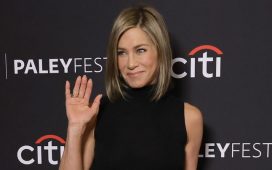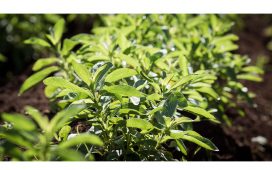Mr. Bourdain told us he would not be focusing on the behavioral quirks of penguins. Instead he wanted to know about the projects we were working on and why scientists pursue research in such a forbidding place. He was well aware that science and climate research were under threat from the new Trump administration.
“The beginning of the 20th century, when scientists and explorers were national heroes, there was a hunger for knowledge and discovery.” Mr. Bourdain told us, then added: “Not a good climate for facts, though, we live in today. It’s a world that is increasingly hostile to basically everything you’re all about.”
During the day, we ran around a polar desert recording information on warming, glacial melt and flooding to add to a 25-year collection of data that helps us identify trend lines. At night, we heard reports via email of colleagues frantically working to save their data because they feared it would be deleted from government websites. And there at our foldable camp table was Anthony Bourdain, giving us a platform to discuss our research on a highly rated television program. He turned his spotlight on our efforts to collect and analyze data critical to understanding the changing climate.
“This is sort of the last place on Earth where science seems to be celebrated at every level of society. Where people are making great personal sacrifices in pursuit of knowledge. That sounds quaint where I come from. It’s quite wonderful,” Mr. Bourdain said to us. “All you need is better press.”
His show would give us that. Watching “Parts Unknown: Antarctica” was a very hopeful moment for all of us because our painstaking work was being celebrated at a time when climate research was under assault in Washington (and, where, unfortunately, it continues to be).
At the end of dinner, we convinced Mr. Bourdain to join us out for a walk to a frozen lake and its sandy beach for a game of Frisbee. We handed him a pair of crampons to put over his shoes. “These would be great for getting out of bars,” he said as we stumbled our way across the ice. We all sat together on the beach watching the midnight sun go behind a mountain and talking about science and our travels.
By the end of his weekend visit to our camp, we had offered to hire him as part of the biology sampling team. He replied that he was sure he’d be fired “for sampling too much of the bacon.”
He hadn’t come to Antarctica for the food. When you look back on his shows, you see that he rarely went anywhere just for the food. Food was a common ground. It was a means to conversation. The conversation that weekend was about science, and Anthony Bourdain, who would have turned 63 on Tuesday, was our champion, as he was for so many others.
Angela Zoumplis is a polar biologist at Scripps Institution of Oceanography at the University of California, San Diego.
The Times is committed to publishing a diversity of letters to the editor. We’d like to hear what you think about this or any of our articles. Here are some tips. And here’s our email: letters@nytimes.com.
Follow The New York Times Opinion section on Facebook, Twitter (@NYTopinion) and Instagram.






